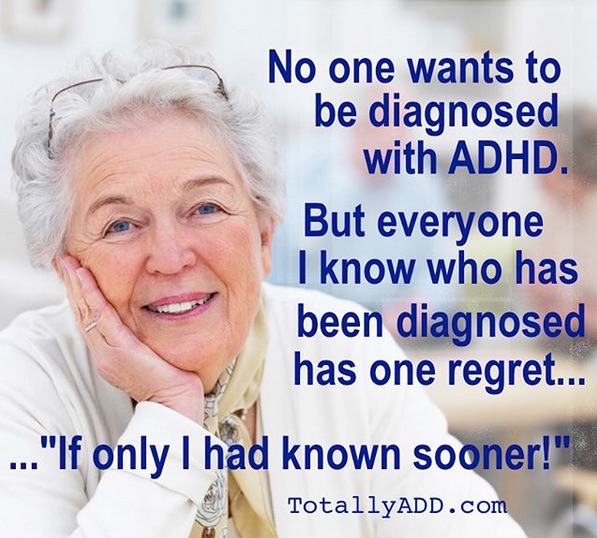
When I was looking for answers early on, I started a support group for the non-ADHD partners of adults with ADHD. This was about 2000. There were no websites on Adult ADHD of any type, and only a tiny handful of consumer books. Generally speaking, the therapists and even psychiatrists from whom we’d sought help had little understanding of ADHD. So, I reasoned, we “partners of” on the front lines would get together and compare notes.
It started as a local online support group here in the San Francisco Bay Area. But it grew international quickly, with about 1,000 members on average since the beginning. Still, I found it hard to identify the key issues. For example, were key issues the topics that group members complained about the loudest? Or, are those simply the topics that the most prolific posters talk about? We were all feeling our way—what’s ADHD, what’s personality, etc..
So I conducted a survey—a comprehensive, rigorous survey, of partners of adults with ADHD. (Some of whom, by the way, had ADHD themselves). In one question, I listed and asked the respondents to identify their ADHD partner’s major challenges as they perceived them, not solely related to the relationship but pervasive in their ADHD Partner’s life.

The top four ADHD challenges:
- Disorganization
- Remembering
- Listening
- Irritability
You’ll hear the partners complain about Disorganization in an overflowing closet or crowded garage. But it’s about more than physical clutter. It’s also about struggling with Time Organization and Organizing your Life and your Week. Around work and around home, organization is just a huge challenge.
Listening is another huge problem, and not just half-listening, while watching TV at the same time. I mean REALLY listening, with your full attention. And Remembering.
One of the biggest problems that isn’t often talked about or well-known is Irritability & Mood Problems. Dr. Barkley talks about ADHD being a condition of dysregulation, and that includes your mood. That means many people with ADHD will be irritable and angry more often, and to a stronger degree, than people without ADHD will.
Sometimes it’s because they themselves are mentally worn down from living with adult ADHD. They deal with a million frustrations in an average day, and they have for years.
For example, consider driving and “road-rage”-type behavior. Have you ever been driving when suddenly another driver cuts you off, and you have to slam on the brakes before there’s a collision?
Well, we who don’t have ADHD might be paying closer attention, and we might be driving more slowly. That means, we still might be irritated with that driver but we can “apply the brakes”—the actual car brakes and our mental brakes—a bit faster than folks with ADHD who have not been paying attention or lost track of their speed. Consequently, they might feel more surprised and thus mentally shaken, which makes them react bigger—by honking the horn and yelling at the other driver. That’s just one way in which various ADHD symptoms can combine in mood-dysregulated behaviors.

ADHD Can Sabotage Romantic Partnerships
That’s one of the things that most people—and most therapists—definitely did not connect with Attention Deficit Hyperactivity Disorder back when I started this work, about 1999. Typically, ADHD-related relationship challenges were seen as just the typical “couples troubles” of the type that can develop over time with any relationship and are associated with certain events. Such as couples adjusting to a job loss, illness, or the arrival of their first child.
For example, the relationship might start out well. The first few years of marriage might go well. But maybe the “partner of” is compensating a lot for their ADHD Partner as far as managing the household and nurturing the relationship. Not knowing that ADHD is involved at that point, they might assume that their partner never learned, growing up, how to perform certain domestic tasks—but will pick it up in time. With the arrival of a child, they re-direct attention from compensating for the ADHD partner to caring for the child. At the same time, they expect their ADHD partner to “step up to the plate.” It is a dangerous double-whammy for the relationship.
The outside observer might conclude that having the child has uptick in conflict. And yes, having a baby can be stressful for any couple, no matter how much they love and welcome the baby. But, like everything else with ADHD, it’s typically going to be way more stressful when you or your partner have unrecognized or poorly managed ADHD.
That’s why many people and therapists don’t think that ADHD is involved. The couple did fine before they had a child, right? ADHD is tricky!

Advice For The “Partners Of”
If you wonder if your partner has ADHD, it’s really important for you first to get validation of your own experience before you broach the topic.
For one thing, until you receive validation and support—until your own suffering is acknowledged—there’s often little room for empathy for your ADHD partner or forgiveness or education. Among the audiences who attend my presentations, I can spot the folks who are struggling with this. They’re sitting there with their arms folded— a defensive posture.
I know what they are thinking. They expect me to tell them—as others have told them—“Oh you should be more patient and compassionate—and celebrate differences!”
Moreover, they’ve also seen the advice often offered to their ADHD Partners: “If your spouse isn’t accommodating, find one who is.” Well, great! Some people can simply divorce and leave their family, and other people can’t—or don’t want to. So, I find it’s better to dig deeper to understand what is going on and how to create mutually beneficial solutions.
But if you validate the partner first, and say, “Yes, we know this has happened, and this has happened, and you’ve been ignored; you’ve been neglected; you’ve been expected to compensate, and your ADHD partner looks like the fun person at the party, while you look like the nag because you’re so overwhelmed with all the details. And you don’t know if your spouse is going to start telling everybody at the party about your sex life, just to get a laugh from the other guests.” So you need to be validated first.
Only then, after you’ve heard, “No, you’re not crazy. We believe you. Yes, this is happening. Yes, other people have experienced it too,” then you can start educating yourself about what you’re up against and jointly working on solutions.
Then, you can also start working on forgiving your ADHD partner. Actually, “forgiving” isn’t always the right word. Personally, I don’t believe in blaming someone for having an undiagnosed neurocognitive condition. Maybe “understanding” is better. Still, acknowledgement of each other’s pain and hurt is important and can be done without blaming.
It’s a tricky area. You can start meeting your partner halfway, as long as your partner is meeting you halfway. But, it takes time, patience, and education.
More from Gina Pera: ADHD & Living Your Best Life & Challenges ADHD Adults Face
About Gina Pera
Gina Pera is an author and educator on Adult ADHD, especially as it can affect relationships. Her online training courses launch February 2021.
She was a veteran award-winning print journalist when, in 1999, her 37-year-old husband was diagnosed with ADHD. The couple learned of the possibility not from repeated attempts at couple therapy but by Gina digging for answers.
Twenty years later, she is an internationally recognized expert on this topic. Her seminal book, Is It You, Me, or Adult A.D.D.? (2008) garnered four national book awards. Dr. Russell Barkley invited Gina to contribute the first-ever chapter on couple therapy to his revised “gold standard” clinical guide (2014). With Arthur L. Robin, PhD, she produced the first clinical guide to ADHD couple therapy based on the evidence (2016).
Gina has presented, by invitation, plenary talks at professional conferences, including the International Congress on Psychopharmacology (2013) and CADDRA (2017).
In her previous career, her work for USA Weekend Magazine won both the prestigious Best Magazine Edition Award from The Association for Women in Communications and a Unity Award in Media, recognizing accurate exposure of issues affecting minorities and disabled persons.
Visit her long-running blog: ADHD Roller Coaster
The following books by Gina Pera are available on Amazon
Adult ADHD and Sex: What You Need to Know (That Sex Therapists Cannot Tell You)




Leave A Comment
You must be logged in to post a comment.